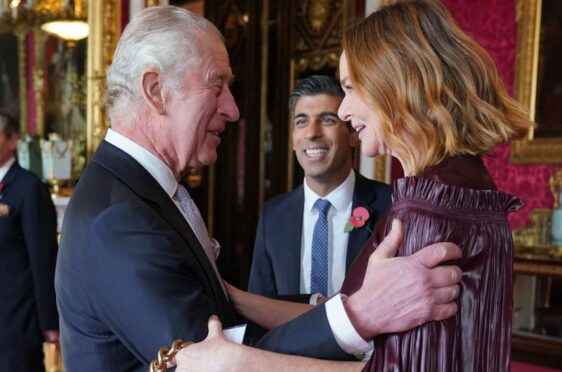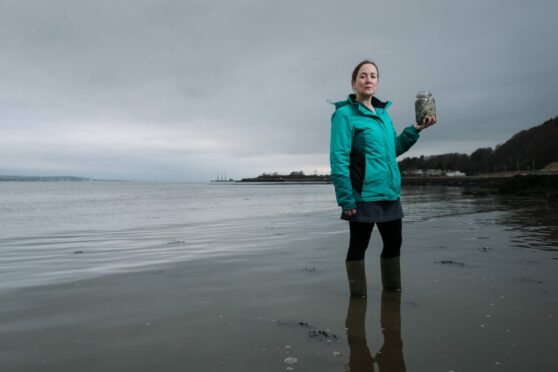
World leaders gathering today at Cop 27 in Egypt have been urged to agree and enforce emission targets or accept catastrophe is inevitable.
United Nations secretary-general António Guterres warned that richer nations must sign a deal with poor countries on climate change or “we will be doomed”.
The UN climate summit, which opens today in Sharm El Sheikh, is expected to be the most troubled in a decade as a gulf deepens between the developed and developing world about tactics on climate change.
Guterres said: “There is no way we can avoid a catastrophic situation, if the developed and developing world are not able to establish a historic pact.
“Because at the present level, we will be doomed. Present policies on the climate will be absolutely catastrophic.
“And the truth is that we will not be able to change this situation if a pact is not put in place between developed countries and the emerging economies.
“For the simple reason that we are approaching tipping points, and tipping points will make climate breakdown irreversible.
“That damage would not allow us to recover, and to contain temperature rises.”
Speaking to The Guardian, he added: “As we are approaching those tipping points, we need to increase the urgency, we need to increase the ambition, and we need to rebuild trust, mainly trust between north and south.”
Rishi Sunak – who originally said he would not attend the event – will urge world leaders to move faster to ditch fossil fuels as he vows to make the UK a “clean energy superpower”.
In his speech tomorrow, he will argue the “shock” to the oil and gas markets caused by Russia’s invasion of Ukraine underlines the need to move to cheaper, cleaner and safer sources of energy.
Ahead of his departure, Sunak, who attended a pre-summit staged with King Charles on Friday after the monarch was reportedly told not to attend by former prime minister Liz Truss, said: “When the world came together in Glasgow last year, nations agreed an historic roadmap for preventing catastrophic global warming. It is more important than ever that we deliver on those pledges.
“Fighting climate change is not just a moral good – it is fundamental to our future prosperity and security.
“Russia’s invasion of Ukraine and contemptible manipulation of energy prices has only reinforced the importance of ending our dependence on fossil fuels.
“We need to move further and faster to transition to renewable energy, and I will ensure the UK is at the forefront of this global movement as a clean energy superpower.”
Russia’s war in Ukraine and the subsequent energy crisis that stoked inflation and threatened food security has created a difficult background for the conference. Wealthy countries may be less willing to pay poorer nations to ditch polluting fossil fuels that contribute to climate change.
Alden Meyer, senior associate at think-tank E3G, said: “There’s no doubt that the ‘polycrises’ could all combine to make it very difficult to make progress.”
The summit is set to be more low-key than Cop 26 conference in Glasgow which aimed to “keep 1.5°C alive” by limiting the global temperature rise to 1.5°C. Temperatures have already risen at least 1.1°C since pre-industrial times.
The most vulnerable nations are pushing for more money to compensate for destruction already triggered by climate change.
US envoy John Kerry said: “Obviously those countries with greater means across the board – and that includes some developing countries that have greater means – need to also step up and help in this transition.
“We don’t view it – and we’re not going to view it – as compensation.
“We are going to view it as our efforts to try to help countries to adapt, to be able to become more resilient and obviously address the challenges that they face as a result of the losses and damages.
“You have to work out the methodology by which you are going to assign a process that works for everybody.”
Wealthy nations have promised to find £87.9 billion a year in climate finance for poor nations, with the target originally meant to have been hit in 2020.
It was first promised in 2009 but has never been accomplished. A report last year suggested the target would not be hit until next year.
Kerry said it should be possible to reach agreement at the gathering at the Red Sea resort but the war in Ukraine had complicated the issue.
He added: “There are people within the fossil fuel industry who are using the crisis in Ukraine, frankly, as leverage to be able to say ‘We need to be pumping a lot more. We’re moving much too fast’. It’s just not true, it’s not an accurate narrative.”
Kerry said countries were realising they needed to reduce their dependence on oil and gas as a source of energy.
He said: “Many countries in Europe – most of them in fact – have applied the lesson of this war, which is don’t allow a petro-dictator to hold you hostage to energy, don’t let them weaponise it against you.”

Enjoy the convenience of having The Sunday Post delivered as a digital ePaper straight to your smartphone, tablet or computer.
Subscribe for only £5.49 a month and enjoy all the benefits of the printed paper as a digital replica.
Subscribe




